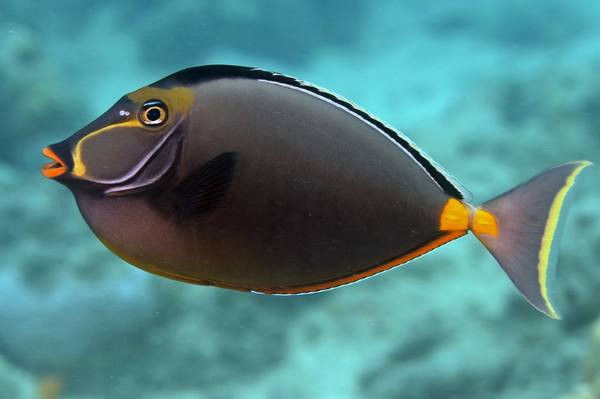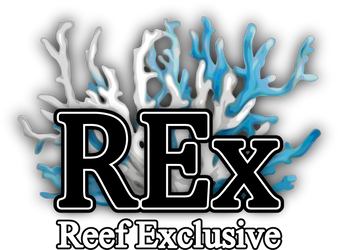
Naso Tang (Naso Lituratus)
Size 3-3,5 Inches
Species Name : Naso Lituratus
Care Level : Moderate
Temperament : Peaceful
Color : Black, Blue, Orange, Red, Yellow
Diet : Herbivore
Reef Compatible : Yes
Water Conditions : sg 1.020-1.025, 72-78° F, dKH 8-12, pH 8.1-8.4
Max. Size : 1' 6"
Origin : Fiji, Indonesia, Philippines, Sri Lanka, Tonga
Family : Acanthuridae
Minimum Tank Size : 180 gallons
Naso Tang (Naso Lituratus) is a species of fish in the family Acanthuridae, the tangs and unicornfishes. The Naso Lituratus species can be found in the Indian Ocean and the Pacific Ocean.
This species can be easily recognised by two bright orange forward-hooked spines on the caudal peduncle (the tail base), its orange lips and black face mask. The body is brownish grey with yellow nape and there is a broad black band on the dorsal fin. The males have filaments on the caudal which the females do not have. It reaches about 45 cm in length.
A 180 gallon or larger aquarium is necessary to provide plenty of swimming room, and places to hide, with a tight-fitting lid provided to prevent jumping to escape.
It is aggressive towards other tangs, but peaceful with other fish in the tank. Naso Lituratus do not harm invertebrates at all, which is why they are ideal inhabitants for reef aquariums. He is generally peaceful and sociable. It is rather curious and will not hesitate to come and see you more closely when it comes up under the surface.
This mainly herbivorous fish requires an essentially vegetable food. In the wild, Tangs spend their entire day swimming around on the reef in search of marine algae and meaty bits of food they can find. It is recommended to feed dried marine algae (Nori), Spirulina Flakes, and frozen mysis shrimp. Tangs quite easily adjust to captive diets and will eventually eat flake and pellet foods as well. This will strengthen their immune system, reduce aggression and improve their overall health. Offer dried seaweed tied to a rock or use a veggie clip, and feed at least 3 times per week.
Size: Small: 1" to 2"; Small/Medium: 2" to 3"; Medium: 3" to 4"; Medium/Large: 4" to 6"; Large: 6" to 8"; Extra Large: 8" to 9"
